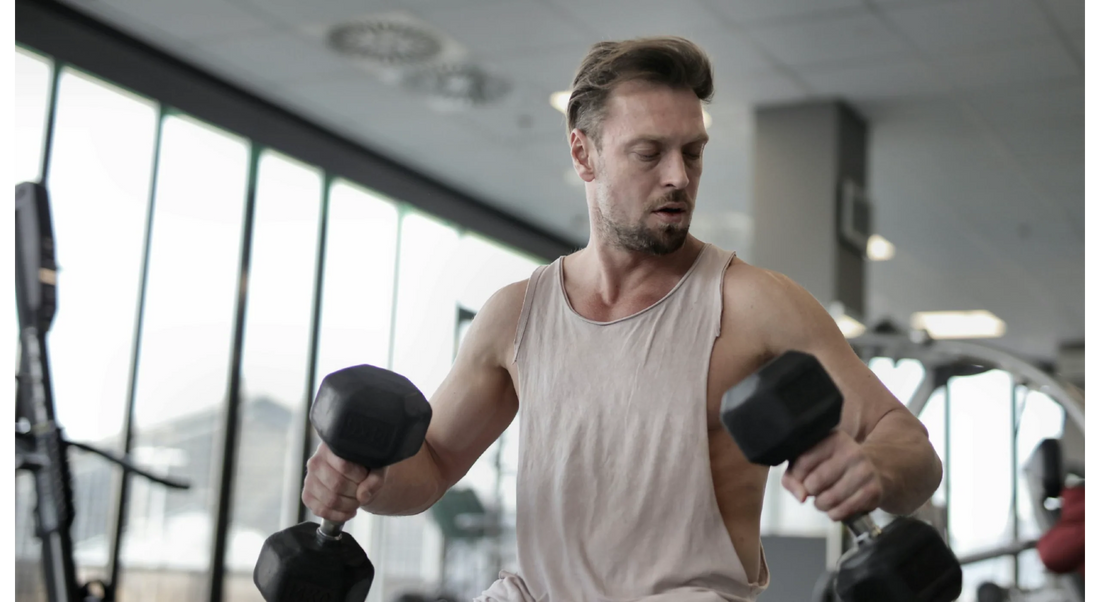How Can Testosterone Improve Athletic Performance?
Testosterone is a naturally occurring steroid hormone, predominantly produced in the testicles in males and ovaries in females, with minor amounts secreted by the adrenal glands. It's the principal male sex hormone and plays a crucial role in developing male reproductive tissues as well as promoting secondary sexual characteristics such as muscle and bone mass, and the growth of body hair. (1, 2)
However, testosterone is more than just a facilitator of physical development; it's a potent anabolic steroid, meaning it helps build muscle mass by enhancing protein synthesis and decreasing protein breakdown. (3)
Increasing natural testosterone can significantly enhance athletic performance. Higher levels of this hormone improve muscle strength and mass, boost endurance, reduce fatigue, and aid in faster recovery after strenuous physical activity. (1, 2, 4)
Athletes often seek ways to optimize their natural testosterone levels through various means such as diet, exercise, and other lifestyle modifications. Understanding how to harness this hormone within healthy and natural limits can provide athletes with the competitive edge they seek while maintaining overall well-being. (4)
If you are curious about how to increase testosterone levels, go to our article: How to Increase Testosterone Naturally
What is Testosterone Used for in Sport?
1. Muscle Growth and Strength
Testosterone's role in promoting muscle growth and strength is well-documented. It enhances muscle protein synthesis, a critical process for muscle growth, while also reducing the rate of protein breakdown. This dual effect not only helps in building larger muscle fibers but also aids in maintaining muscle mass, a key factor for athletes in power and strength disciplines. (5, 6)
Scientific studies have consistently shown that higher testosterone levels correlate with increased muscle size and strength, which can directly translate to better performance in sports that require explosive power and rapid strength deployment. (5, 6, 7)
2. Recovery and Endurance
Beyond muscle building, testosterone significantly influences recovery times and overall endurance. It helps reduce muscle damage incurred during intense exercises, enabling quicker recovery and readiness for subsequent training sessions. (3)
Testosterone also plays a role in red blood cell production, which directly impacts oxygen delivery to muscles. Improved oxygen delivery enhances endurance and stamina by enabling more sustained physical output at peak levels. This aspect of testosterone is particularly beneficial in endurance sports, where prolonged exertion is required. (8, 9)

3. Fat Reduction
Athletes often aim for optimal body composition, and testosterone assists by enhancing the body’s metabolic rate (the rate of energy expenditure per unit time). Higher testosterone levels have been linked to reduced body fat percentages, achieved through increased metabolic efficiency. (10)
Testosterone promotes the burning of fat for energy, a process called fat oxidation, which is crucial for athletes looking to maintain lean muscle mass without excess fat. This hormone's ability to aid in fat loss while preserving muscle strength is invaluable for athletes in weight-class sports or sports demanding high power-to-weight ratios. (10, 11)
4. Psychological Benefits
Testosterone impacts not only the physical but also the mental aspects of sports performance. Higher levels of this hormone are associated with better mood, greater confidence, and increased aggressiveness, traits that can make a significant difference in competitive environments. (12, 13)
Moreover, testosterone has been linked to improved concentration and motivation, helping athletes stay focused and driven during training and competition. These psychological benefits, when combined with the physical enhancements testosterone provides, create a well-rounded athlete capable of exceptional performance. (14)
Learn More about the Main Benefits of Testosterone and Discover Nullure's Natural Testosterone Booster to help optimize your testosterone levels. Understanding and optimizing natural testosterone levels can provide athletes with significant physical and psychological advantages in sports.


